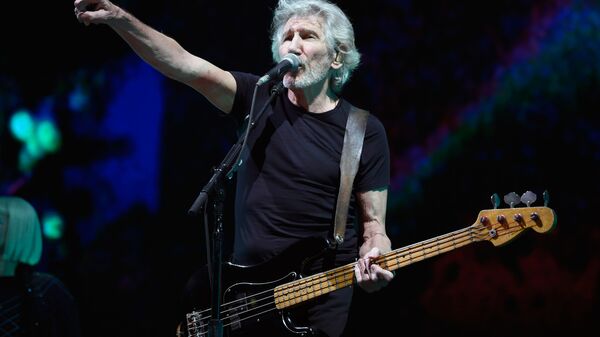Former Pink Floyd frontman Roger Waters has criticised Indian Prime Minister Narendra Modi and his governing Bharatiya Janata Party (BJP) for the controversial Citizenship Amendment Act (CAA) calling it “facist and racist”.
In an event organised in London as a protest against WikiLeaks founder Julian Assange’s extradition to the United States, Waters, on stage, read out a few lines from Indian poet Aamir Aziz’s poem "Sab Yaad Rakha Jayega" (Everything will be remembered).
"This is a young man none of us know. His name is Aamir Aziz and he is a young poet and activist in Delhi. He is involved in the fight against Modi and his fascist, racist citizenship law", began Waters.
“Everything Will Be Remembered…Kill us, we will become ghosts and write of your killings, with all the evidence. You write jokes in court; We will write 'justice' on the walls. We will speak so loudly that even the deaf will hear. We will write so clearly that even the blind will read. You write 'injustice' on the earth; We will write 'revolution' in the sky. Everything will be remembered; Everything recorded", he said.
Roger Waters of Pink Floyd reads Aamir Aziz's 'Sab Yaad Rakha Jayega' and slays Narendra Modi. #DelhiRiots2020 pic.twitter.com/LAsDDD01Sq
— Samiran Mishra (@scoutdesk) February 27, 2020
Aamir Aziz is best known for his protest song "Achhe Din Blues", which has received around 200,000 views on YouTube since its release in March 2019.
However, netizens didn't appreciate Waters' gesture.
Irrelevant. Not even 0.25% of India knows who this joker is.
— Pranaav Jadhav (@pranaavj) February 27, 2020
His father was the labour party activist, no wonder he hates Hindus and India. 🤷🏼♂️
— Vaibhav Jain (@_VaibhavJain) February 27, 2020
Not even a single Muslim living in India has got his citizenship revoked. Roger Water under the bridge.
— Bahadur 2.0 (@my2bit) February 27, 2020
Protests against the Citizenship Amendment Act (CAA), have taken the lives of 53 people so far, including 34 in Delhi.
The law seeks to grant citizenship to illegal immigrants from religious minorities who faced persecution in Pakistan, Bangladesh, and Afghanistan and arrived in India before 2015. The law, however, excluded Muslim migrants from the list, which was deemed discriminatory and unconstitutional by many activists. The government has strongly denied these allegations, saying that the law does not discriminate against anyone.


